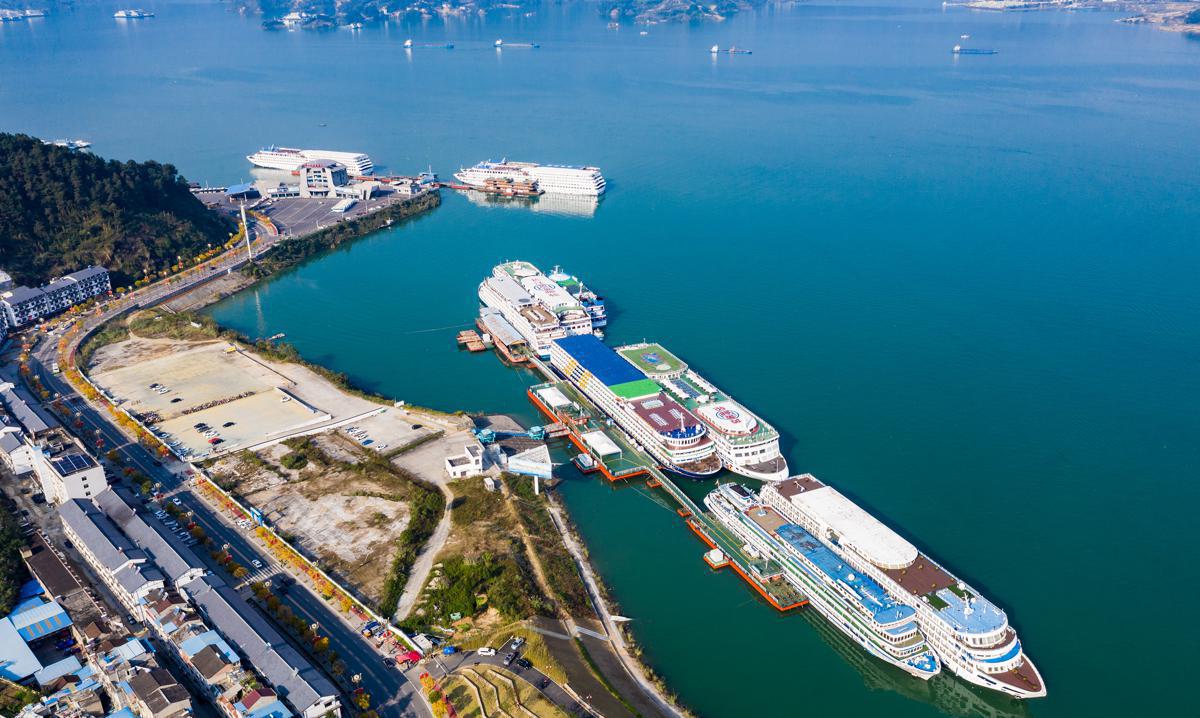
BEIJING - China recorded a steady growth in waterway freight volume in the first five months of 2024, the Ministry of Transport said Wednesday.
From January to May, approximately 3.9 billion tonnes of cargo was transported via waterways across the country, marking a 7 percent increase year-on-year, said Vice-Minister Fu Xuyin at a press conference.
READ MORE: China reports generally stable growth in final accounts for 2023
Container throughput at ports nationwide exceeded 130 million twenty-foot equivalent units (TEUs) during the period, up 8.8 percent from a year earlier, Fu said.
During the first five months of this year, the country's fixed-asset investment in waterway transport reached 78.6 billion yuan (about $11.1 billion), increasing 7.2 percent year-on-year and remaining at a high level
Fu added that building "smart ports" is a top priority for China's waterway transport development, with efforts underway to accelerate the automation of various port facilities. Currently, the country has set up 21 container ports and 28 dry bulk ports that operate automatically.
ALSO READ: State Council specifies priorities for promoting China's private economy
During the first five months of this year, the country's fixed-asset investment in waterway transport reached 78.6 billion yuan (about $11.1 billion), increasing 7.2 percent year-on-year and remaining at a high level, he said.
The investment has funded major infrastructure projects such as the Pinglu Canal, which is expected to strengthen connectivity between south China's Guangxi Zhuang autonomous region and Southeast Asian countries, according to the vice minister.
ALSO READ: Chinese SOEs see increasing revenue, profits in Jan-May
China's waterway freight volume hit an annual record high of about 9.4 billion tonnes in 2023, data from the transport ministry showed.


